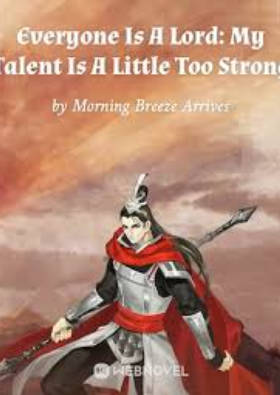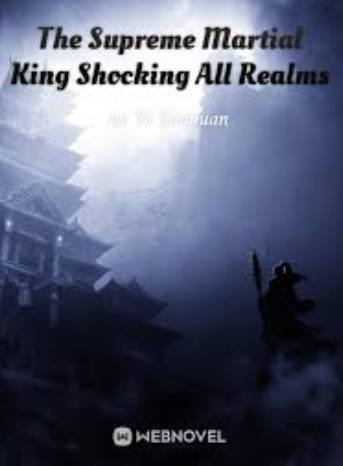Chapter 359 Yang Feng Yin Violation
The battle to attack Tver began soon.
As Shulka said, the first thing the Soviet army did was to blow up the houses distributed across the river.
This is not difficult for the Soviet army. Even if the Soviet army's infantry coordination is not good, the quality of artillery observers is insufficient, but the house cannot walk without legs, and then it is a question of how many shells and bombs to use.
However, Rokossovsky thought the attack speed was slow and sent planes to bomb.
Regarding this, Katukov couldn't help asking in doubt: "Don't we have three days?"
"The situation has changed, Comrade Katukov!" Rokossovsky said: "The enemy is retreating to Tver in a planned way!"
"Didn't their head of state not let them retreat?" Katukov asked suspiciously.
This has long been no secret to the Soviet army. Before that, the German army could not bear the severe cold and surrendered to the Soviet army. In addition, there were prisoners captured by the Soviet army. Their confessions were that Hitler did not allow the German army to retreat.
"We also think so!" Rokossovsky replied: "That's why the Supreme Command thought that there were three days to attack Tver, but now it seems that this is not the case! In short, the sooner Tver is taken, the better! "
"Yes, Comrade Rokossovsky!" Katukov replied.
In fact, this is the secret crossing of the German generals... As the saying goes, "There are policies at the top and countermeasures at the bottom." Although Hitler strictly ordered the troops not to take a step back, the generals fighting on the front knew that if they were really not allowed to take a step back, the German army would be finished. .
So, the German generals on the front line, including Kubiler, commander of the Fourth Army, were taking advantage of the Soviet attack to make a hidden retreat.
To put it simply, it is to exaggerate the Soviet attack in a certain position in the battle report.
Tver, for example, in terms of offensive pressure, actually has only one tank brigade, but Kubil reported: "There is at least one mechanized army. Obviously, the enemy wants to break through Tver and cut off our army's retreat!"
"Do we still have reserves?" Hitler asked.
"Yes, there is still an armored regiment!" Kubil replied: "But the Russians are attacking in an all-round way, and entering the reserve team too early will make our army very passive!"
"Then, let troops from other directions rush to reinforce!"
"Yes, Your Excellency the Führer!" Kubil replied.
So, the name reinforcement is actually retreating, because the fact is that the troops on the front line have been transferred back.
This is actually a commanding style of the German generals, especially the generals of the Wehrmacht... quite a few of them actually don’t listen to Hitler’s words and are more willing to command battles according to their own ideas, so Hitler doesn’t trust the Wehrmacht. Reasonable.
Many people in modern times believe that after the defeat in the Battle of Moscow, the German army did not collapse across the board because of Hitler's order "not to take a step back".
In fact, the opposite is true.
Hitler's "no step back" order was issued before the Soviet army began to counterattack.
What really allowed the German army to keep the line of defense...
On the one hand, the German generals "followed the law and violated the law" and fought and left. Instead of retreating, they were actually retreating gradually.
On the other hand, the Soviet army suffered heavy losses in the Moscow Defense War and was weak.
If it is true that "one step is not allowed to retreat" as Hitler ordered, the result will inevitably be a collapse of the whole line.
Of course, Rokossovsky and others did not know this.
This "reinforcement" of the German army put pressure on the Soviet army, so the attack on Tver accelerated.
Airplanes swooped down from the air one after another to bombard the German positions on the opposite side of the riverbed.
However, it is disappointing that the aerial bombs were dropped one after another, but not many hit the target... Soviet pilots suffered heavy casualties in previous battles. Many pilots who participated in the battle were urgently transferred from the aviation school. New recruits with actual combat experience who have never even dropped bombs.
It should be said that the situation at this time is not bad, because as the war went on, even these recruits who had flight training in the aviation school were almost lost, so they hurriedly trained for a few months before being sent to the air join the war.
But the Soviets are incredible. Even so, their air force can take a breather, and there are even many ace pilots among them.
However, at least until now these ace pilots have not appeared.
In the end, Rokossovsky gritted his teeth and bombarded the houses on the other side of the river with rockets... At this time, although the Soviet army had turned to counterattack, supplies were still in short supply, which was one of the reasons why the German army did not collapse. .
Then, following Katukov's order, the tanks of the 1st Guards Tank Brigade set off.
Thirty "Matildas" drove ahead, followed by Soviet soldiers.
Although the various shortcomings of the "Matilda" tank have been criticized by others, when launching a group attack on the battlefield, it still has a bit of power under the sound of "rumbling" motors and tracks.
Not long after the firing, the German artillery fired to stop the fire...but only a few shells could hit the Soviet camp.
The reason is that the Soviet army took the initiative in the air at this time, to be precise, it was at this specific location near Moscow, and the Soviet Air Force had the upper hand under extremely cold conditions.
So, the Soviet army could use the air force to suppress the German artillery fire.
Almost at the moment when the German army opened fire, dozens of fighter jets and bombers circling in the sky swooped down on the enemy artillery positions...Their firing meant that the position was exposed, and what awaited them next was an indiscriminate bombing.
The tanks continued to advance, and the German troops emerged from the defense line on the opposite shore to set up various weapons.
Then, when the Soviet army opened up the river (the width of the river is about 300 meters), the German army opened fire with an order.
Intensive gunshots and cannons sounded like popping beans.
Mortars, anti-tank guns, machine guns...the entire battlefield was covered with snow powder, and many ice cubes were blown away, turning into sharp shrapnel to injure people everywhere.
Shulka got a scratch on his face.
At that time, he didn't feel it at all, because the blood was quickly frozen, and it hurt after the battle.
However, the "Matilda" tank with thicker armor really lived up to expectations. Bullets and shells hit its front armor and made a "clang" sound, but it still continued to move forward against the rain of bullets.
There were only two of them. I don't know if it was because of a malfunction or a broken track and stopped.
Shulka raised his rifle and poked his head out, looking forward.
The height difference of the river bank in front was about 1.5 meters. Under the action of ice and snow, it became an obstacle that tanks could not overcome.
If there is no rocket launcher, this battle really does not know how to fight, unless the engineers can pave the way for the tanks under the enemy's muzzle and grenades.
But this is not the case now.
(end of this chapter)
RECENTLY UPDATES





